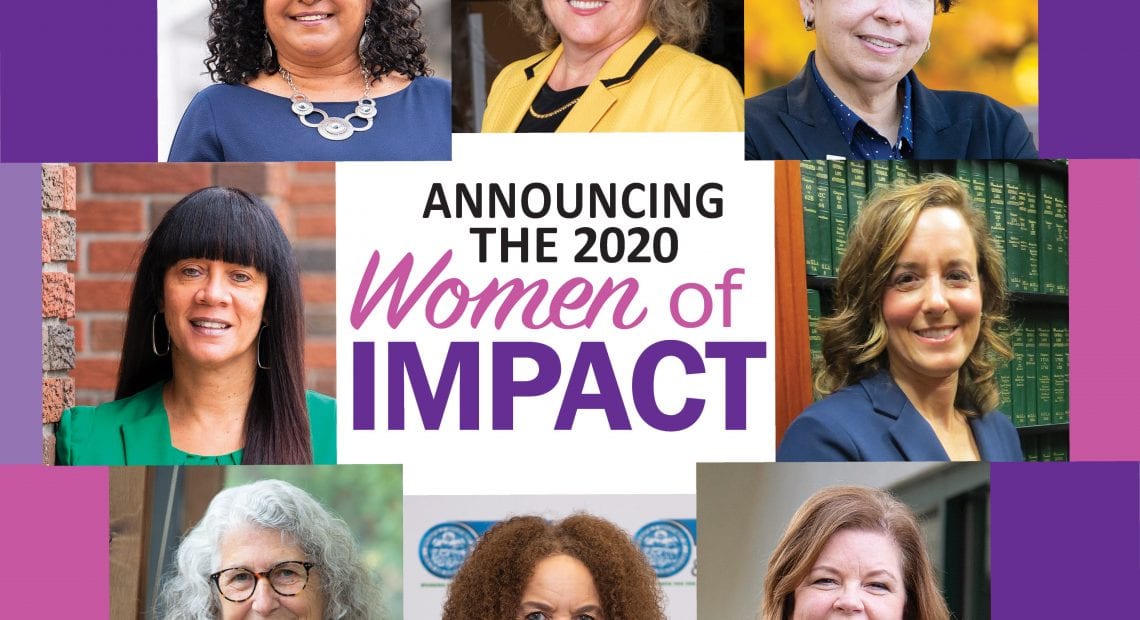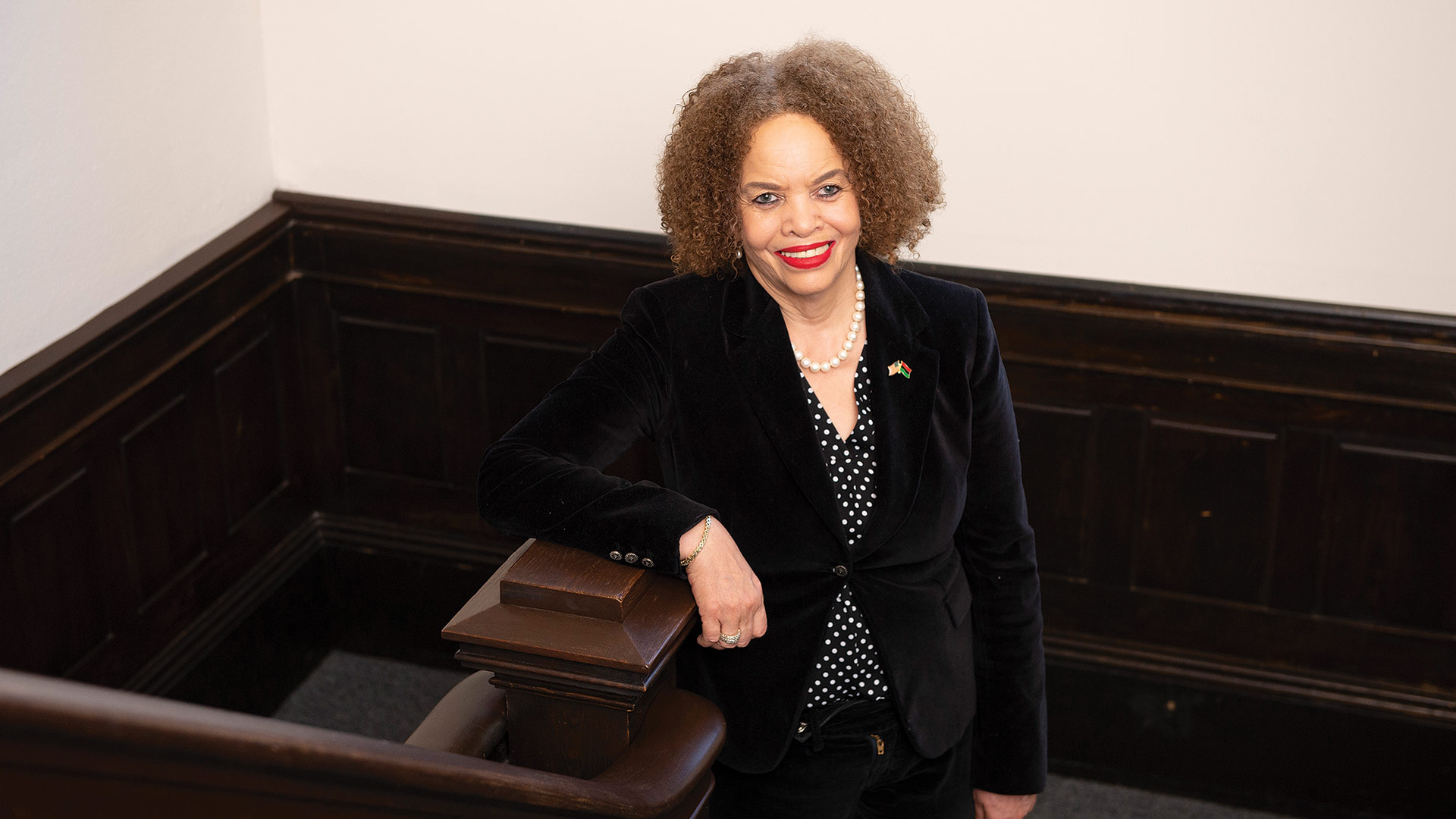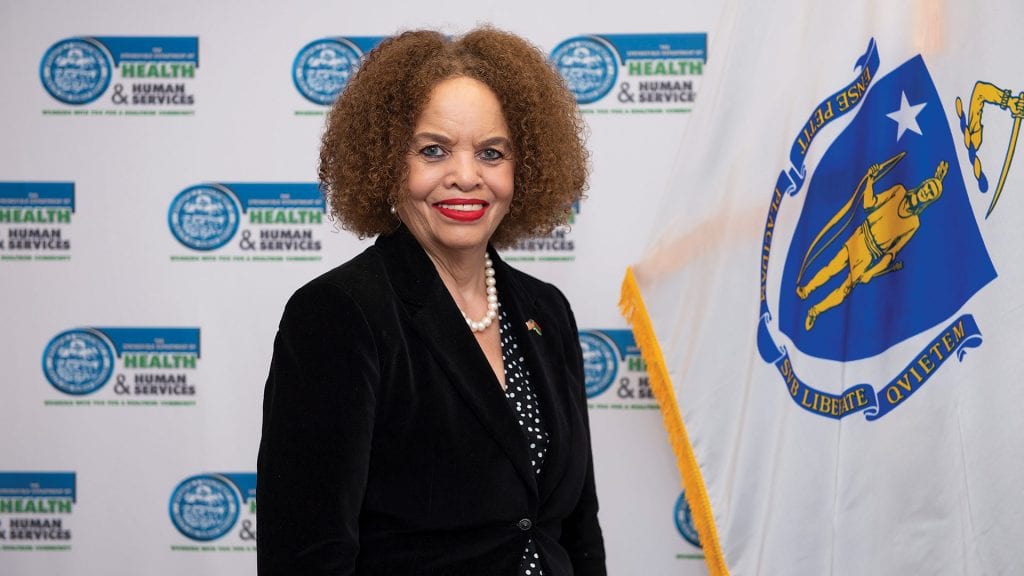
Helen Caulton-Harris
Health and Human Services Commissioner, City of Springfield
This Leader in Public Health Is a Fierce Advocate for Social Equity

Helen Caulton-Harris
A career like that of Helen Caulton-Harris can’t be adequately summed up in just a few words. But she offered three important ones anyway.
“I believe in three things that are important to me and how I have spent my career: educate, advocate, and legislate.”
They apply both on the broader level and to specific moments in time — like the era of COVID-19 we’re living in now.
“To educate during this pandemic means to make sure we are educating the community about those things we need to do to stop the spread of this virus,” said Caulton-Harris, who has served as Springfield’s Health and Human Services commissioner for almost a quarter-century. That education has been a challenge, she added — and a constant learning experience as well.
“In the beginning, we really didn’t know what the impact was going to be. That’s why it’s called a novel coronavirus, because it’s new. Even the infectious-disease doctors, people who have studied all the science around diseases, had a learning curve with this virus. So we all are on this journey to try to educate.”
As for her advocacy role, “there are individuals in our community who don’t have a voice; they don’t have the ability to advocate for themselves, so our job in public health has really been to be the voice for the voiceless in our community, to make sure they get what they need, but also make sure we are speaking truth to those individuals who need to hear the truth around how to stem the tide.”
“Poverty is really the number-one public-health issue that I’ve had to deal with over the years — the fact that individuals living in poverty do not have equal access to the kinds of outcomes that we want for a healthy population.”
Finally, “what are the legislative interventions that need to be put in place in order to make sure we are doing what’s necessary on a political level?” she asked. “The messages from the political landscape, particularly at the federal level, have been very mixed, so it’s really been local public health out front, trying to do what we need to do in order to stem the tide of this virus.”
It’s been a busy year for someone whose role with the city — she also oversees animal control, veterans’ affairs, elder affairs, and libraries — has kept her plenty busy even without a pandemic to track every day. But it’s also been an opportunity to spotlight one of her passions: the demographic inequities that exist in public health.
“The pandemic has caused all of us to pause and really tear the Band-Aid off of what has been a festering wound,” Caulton-Harris said. “We’ve had to look criticially at our populations and how this virus is really impacting our community.”
It starts with the frontline workers — not only healthcare workers, but grocery-store employees, bus drivers, those who clean the hospital rooms, and so many others. “Those individuals overwhelmingly are black and brown, based on the data that we have.”
Then there’s the connection between poverty and healthcare access, and how economic factors put people at greater risk.
“Poverty is really the number-one public-health issue that I’ve had to deal with over the years — the fact that individuals living in poverty do not have equal access to the kinds of outcomes that we want for a healthy population,” she told BusinessWest. “So, from the beginning, we recognized that this virus really is impacting on the black and brown communities of the city of Springfield. It has been eye-opening from that perspective.”
Game Changer
‘Equity,’ as applied to topics of social justice, is more commonly discussed today than it once was, but it’s much more than a buzzword to Caulton-Harris, who recalls being passionate about matters of equity as a UMass Amherst student in the 1970s.

Helen Caulton-Harris has long recognized the connection between economic well-being and health, and COVID-19 has negatively impacted both for many families.
“During that time, there was a lot of momentum around social change and equity,” she said. “Public health says that everyone should have equal access, and we were thinking even then about how we can make social change. We are still — I am still — on that journey.”
When Mayor Michael Albano — the first of three Springfield mayors she has served under — appointed Caulton-Harris to her role in 1996, tasking her with combining the then-separate Department of Public Health and Department of Human Services, she didn’t consider herself a political person or a public figure. But she did relish the challenge of tackling some very serious issues, from infant mortality to teen pregnancy; from HIV and AIDS to substance-use disorders.
None of those have faded into irrelevance, of course. “All those things we saw as really challenging public-health issues are things we still work with today.”
But there were other shifts. For example, after 9/11, weaponized anthrax was a big issue, and on numerous occasions, Caulton-Harris helped investigate some suspicious white powder in Springfield. It was the first time her public-health focus shifted from behavior-related and community-based issues to external threats.
The other shift has been a growing understanding of how social determinants like employment, education, environment, and housing conditions directly impact health.
“We were working in silos, trying to help individuals make smart behavior changes, but public health is population-based,” she said. “We need to think about public health in the broadest sense and how it impacts populations. And social equity is the central piece of these social determinants of health — really looking at where a person works, plays, and lives.”
Meanwhile, the education aspect of her job continues to be critical, particularly with the COVID-19 infection rate rising in the city and across the state.
“When we were doing well, there were individuals in the city of Springfield and in Massachusetts who thought we were in a position where we could begin to take risks. And I think individuals did that. So we’re seeing a surge in the virus,” she said, noting that the previous week’s new case count in the city was 235, up from 107 the week before.
“COVID fatigue is absolutely real. I think each of us is tired. We have been battling this since late February, so I understand that individuals are tired,” she went on. “I have personally met residents who can’t go to funerals, who had to cancel weddings, who can’t go to hospitals and hold the hands of their loved ones. It is just really heart-wrenching to understand what’s going on. We believe that health is physical, mental, spiritual, and emotional, and all the quadrants of our health have been compromised by this virus.”
But if Springfield could control the spread in the spring — which it did, remarkably well — it can do so now, she believes. But it will take a collective effort.
“This virus really jumps from person to person; it loves having a host, and we are the host. Unless we do things like face covering, washing our hands, social distancing, and staying home when we’re sick, then the virus will continue to replicate itself until we have a vaccine.”
Family Legacy
When Caulton-Harris talks about responsibility, she speaks from the heart, and from a family legacy stretching back from her father, who was a Springfield police lieutenant, to her great-grandfather and great-great-grandfather, who served in the 10th Cavalry of the U.S. Army and the 54th Massachusetts Infantry Regiment, respectively.
“They contributed to the person I am,” she said. “We were raised to understand we had a role in the community and needed to give back.”
She’s also quick to credit the impactful women who shaped her own career, including the African-American nurses and nurse supervisor with whom she worked at her first job, at Neighborhood Health Center in Mason Square.
“To become a Woman of Impact is really important because I was immersed in women who had an impact on my life,” she told BusinessWest. “And they paid it forward by nurturing me, by mentoring me, and by making sure their behavior was something I would want to emulate.
“So, all these years later, to think about having an impact in my career, in my life, with other women is very, very gratifying,” she went on. “My journey has been completely dedicated to that social-justice movement that I saw as very important when I was a young woman at the University of Massachusetts. So I am really fortunate to sit here and feel as though I have lived that social-justice experience, rooted in science.”
She’s equally gratified when others follow in her footsteps.
“Three mayors allowed me to make decisions and supported those decisions,” Caulton-Harris said. “I would like to see more women, particularly women of color, emerge in leadership positions where they are decision makers and they can also have an impact on our residents, our state, and our nation.” u
Joseph Bednar can be reached at [email protected]




